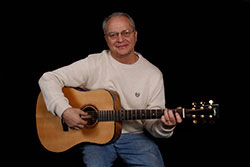Buy Locally-Made Instruments
We have all witnessed the growing movement to support local farms and businesses.
Americans are realizing that there are benefits to knowing the people who grow the food they eat.
And the people who actually make the items they purchase.
This is different from the corporate model with which American consumers have been
dealing with for the last 35 years.
There is usually one reason that causes us to decide to buy from a mega-corporation.
Lower prices. And name/logo recognition. Corporations rely on ‘Branding’ strategies to
get repeat business. That way, they can fire the person you last worked with, and rely
on your unconscious gravitation towards something that seems to be a ‘known’.
The few dollars you may save doing business with a national chain can appear to be a
good thing. Until you have a problem and need ‘Customer Support’.
Then you get to sit in a “virtual waiting room” pressing one, pressing two, and trying
to choose from a list of options that do not apply to you. When you do reach a person,
that person is likely located on the other side of the world, meaning that
‘customer support specialist’ is working in the middle of the night (in their country),
and trying to learn English on the job and in their spare time.
Of course, if that big corporation wanted to hire Americans to handle the ‘customer service’
needs of their American clients, they could certainly hire Americans. But since the overriding
concern of big corporations is bottom line profit – not customer service – they make a decision
to hire the very cheapest ‘customer service’ money can buy.
Not the best. The cheapest. Customer service ranks far below profits, stock prices and
brand-name recognition.
Customer service is at it’s very best when you have some relationship with the seller of
the goods. And nowhere is that more true than in the crafts and arts professions.
An artist or a luthier is intimately connected with their works. When you deal with such
a person, not only is the artist connected to you through the sales transaction, but also
through the thing they have created.
A fine example of local craftsmanship can be found in the shop of Richard Kluttz, in Concord.
He and his wife have had a successful picture-framing business for years. But his passion is
building fine guitars.
I have visited his shop several times. And his line of Caston guitars are the equal of any
being made today. Think Wayne Henderson in Rugby, VA, or Collings in Austin TX, or Huss and Dalton
in Staunton, VA. Top of the line, artist-quality instruments.
Richard has built fine guitars with several different woods. Let me tell you about a few:
One of my favorites is made from Black walnut and Spruce, which has an especially warm tone
without giving up any volume, or projection.
Another is made from Santos Rosewood and Spruce, and has all the most desirable qualities
of that popular guitar hardwood.
Perhaps the most unusual is one he made with Amazon Rosewood paired up with a top
made of Redwood taken from a railroad trestle built in 1876(!).
It is a new guitar but sounds like it is 100 years old.
And on these Caston guitars, the finish work is as perfect as anything I have ever seen.
His years of experience creating picture frames for fine art honed his craftsmanship to a
very high level.
And, if you buy one of his instruments, you are buying from a local artisan.
